Last Updated on December 24, 2025 by Emma Fajcz | Published: February 9, 2017
Filled with quintessential Spanish traditions, Seville is a must-visit city in Spain. And if that wasn’t enough, there are a whole host of incredible things to do in the city!
It has the famous April fair with beautiful brightly colored flamenco dresses, serpentine streets that are impossibly narrow, processions during Holy Week and food that will make you want to live there forever. On top of that, the numerous civilizations that have passed through Seville throughout its fascinating history have left it full of amazing sights and monuments. From museums filled with incredible art to atmospheric beautiful parks to neighborhoods steeped in history, the city has it all! Here we outline, in no particular order, the top 10 things to see in Seville.
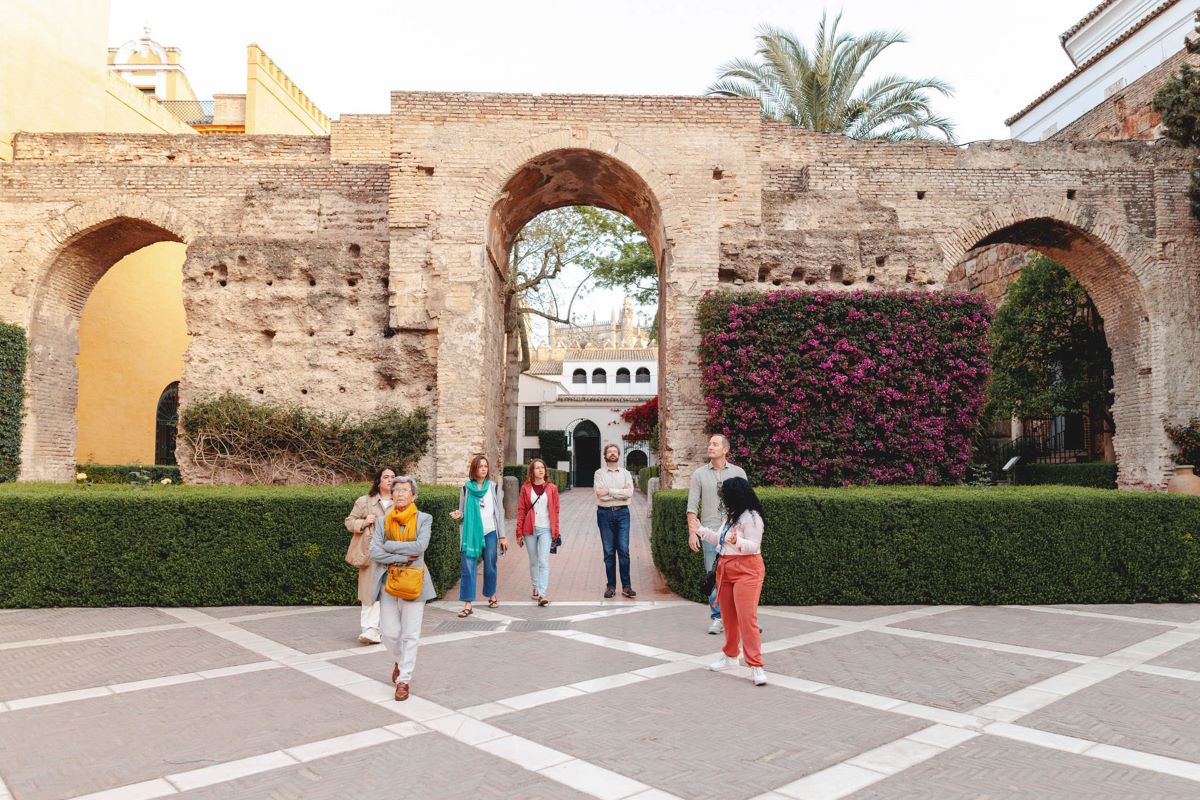
Visit the Cathedral
The Cathedral of Seville is the third largest church in the world (just behind St. Peter’s Basilica in Rome and the Basilica of the National Shrine of our Lady of Aparecida in Brazil.) The best-known feature of this Gothic style church is its bell tower, “la giralda,” and the weather vane on top (nicknamed“el giraldillo”). The tower used to be a minaret when the site was used as a mosque under Muslim rule. Now you can climb up to the top and get fantastic views of the city. It really is as beautiful as everyone says.
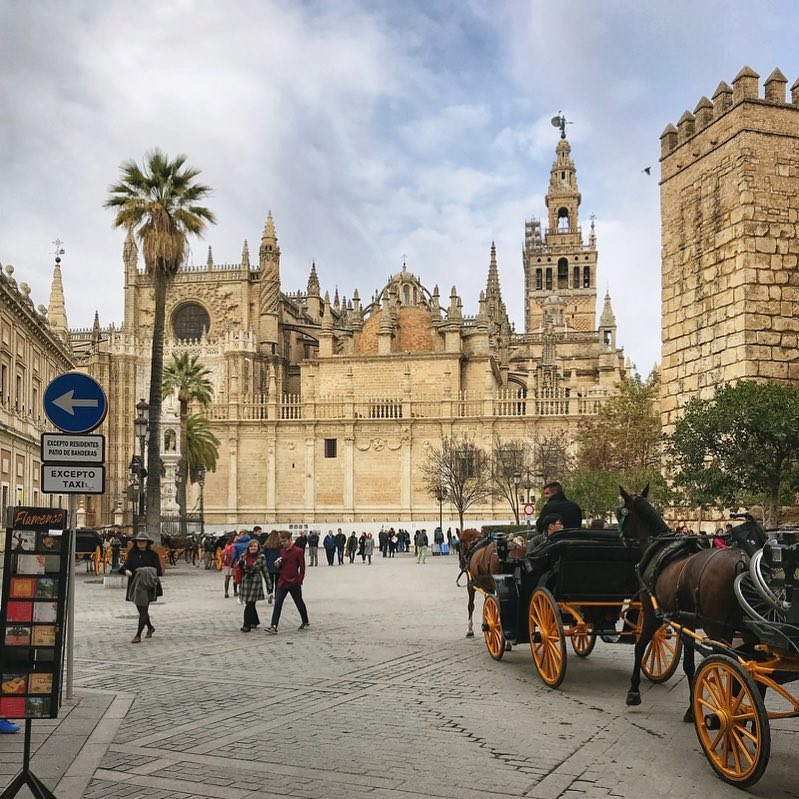
See Masterpieces at the Fine Arts Museum
Seville’s Fine Arts Museum is tucked away behind Plaza de Armas, not far from the center of town. The architecture of this building is stunning – it used to be one of Seville’s many convents! The museum boasts a collection of works by famous artists such as El Greco, Pacheco, Velázquez and Alonso Cano. It also features the work of (possibly) lesser known Seville artists Murillo and Zurbarán. If you enjoy art, this museum is an essential stop during your time in Seville. It’s also the perfect way to spend a morning on the rare occasion it rains!
Snap Photos in Plaza de España
Of course, any visit would be incomplete without a trip to Plaza de España. This plaza might ring a bell if you are a movie buff – it was featured in scenes from “Lawrence of Arabia”, “Star Wars” and more recently, Game of Thrones. When you see the details of the building, you’ll understand why so many producers are keen to use it as a set!
Built in the year 1928, the Plaza de España is a huge semicircular plaza on the edge of Maria Luisa Park. It was originally built as part of the Ibero-American Exposition in 1929 and one of the most beautiful parts are the little tiled alcoves that represent each province in Spain. Aside from its moments of fame in the cinema, today this ornate building is used for governmental offices. It’s also a great photo opportunity for visitors and Seville residents alike.
Seville’s Plaza de España has appeared in many well-known movies, making it a major draw for tourists.
Wander Through Maria Luisa Park
Although Maria Luisa Park was once upon a time part of the gardens that surrounded the Palace of San Telmo, in 1893 it was donated to the city and has today become Seville’s main public park. It’s known for the huge number of birds that can be found there (doves, swans, parrots, and ducks) and is a beautiful place to take a walk. If you are spending the hot summer months in Seville, this is one of the best ways to pass time in the city. It’s a great place to escape the scorching sun or simply practice your photography skills in one of the most beautiful parks in Seville.
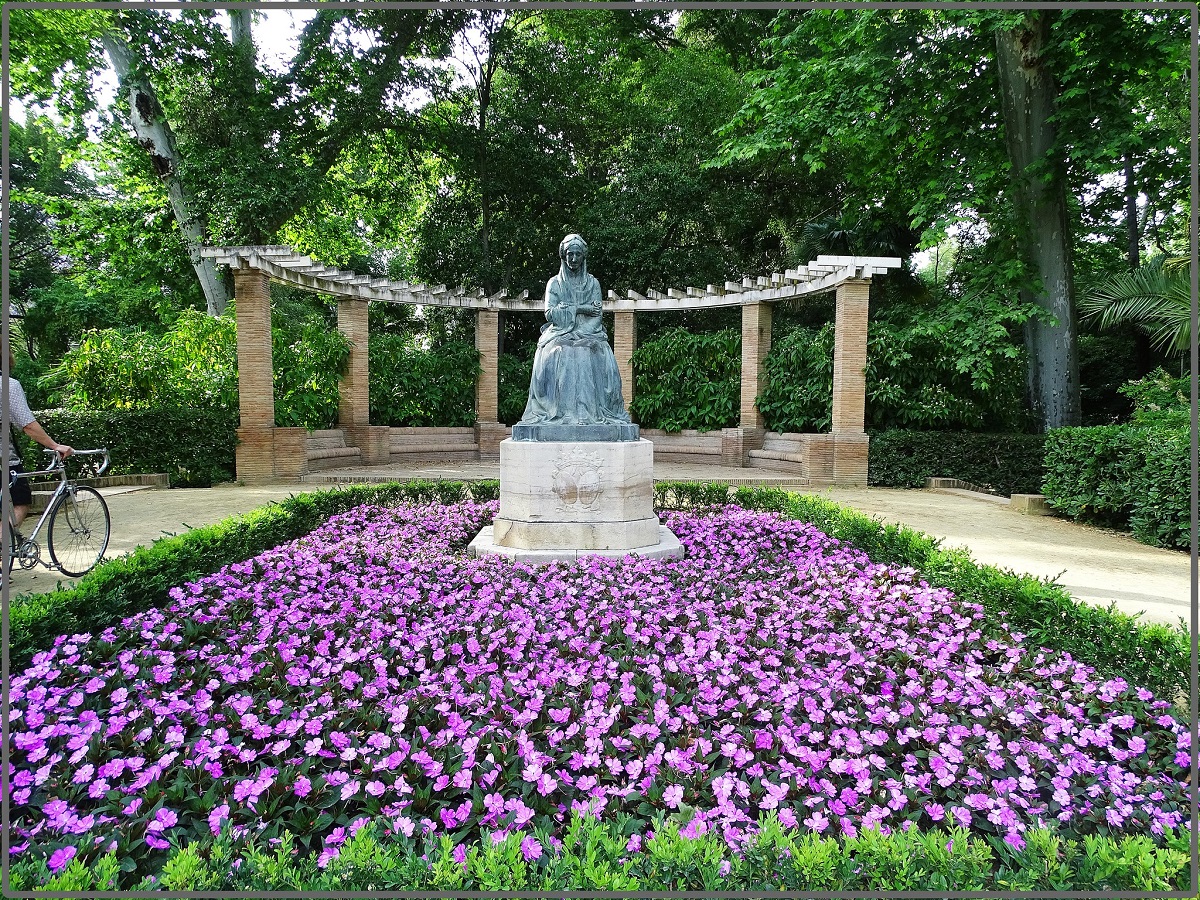
Spend Time at the Real Alcázar
If you are an architecture or history buff, The Real Alcázar should top your list of what to see in Seville. In fact, even if you aren’t you absolutely should visit anyway!
Located just opposite the Cathedral, this Moorish fort which evolved into a Royal Palace is one of the best examples of mudéjar (Moorish & Christian) architecture on the Iberian Peninsula. Some corners even remind us of the larger and more famous Alhambra Palace in Granada, making it is a great place to come to learn about the past or just lose yourself in the beautiful surroundings. For fans of TV series Game of Thrones, you may find some of the Alcázar familiar as this is another place in Seville where a number of scenes from the show were filmed.
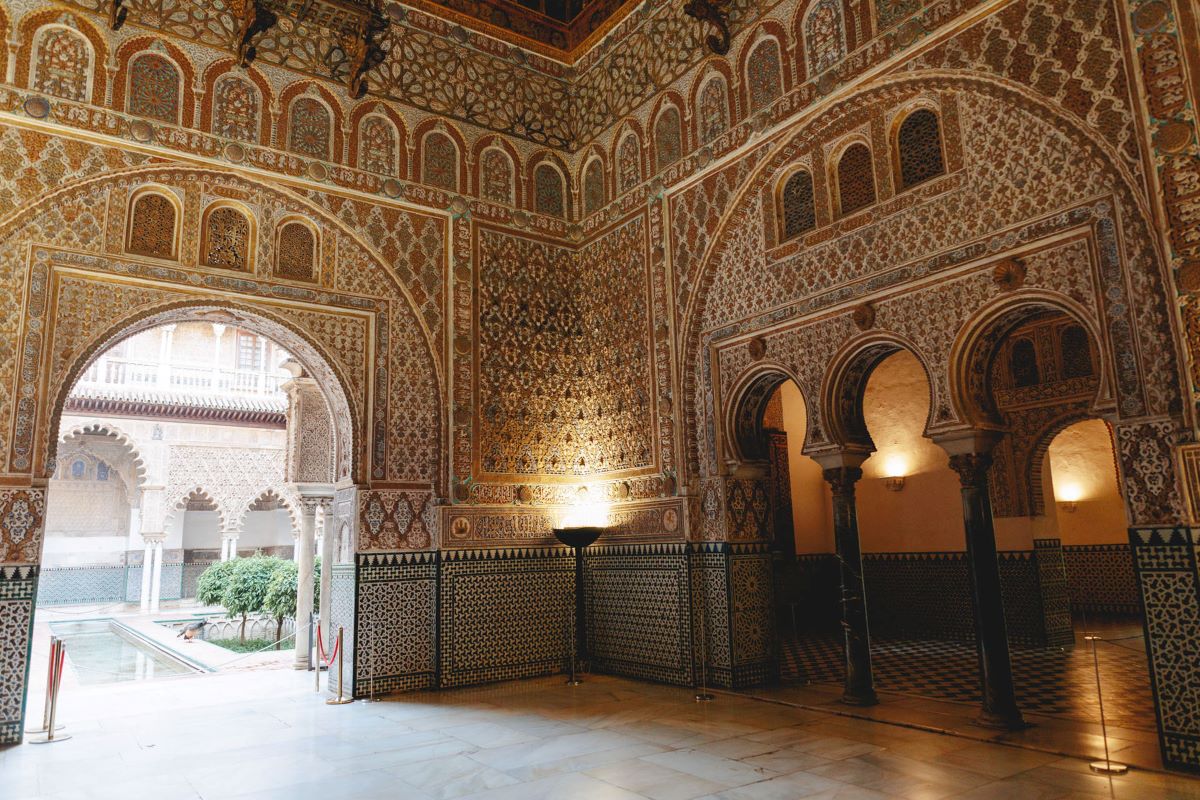
Pay Homage to the Basilica of the Macarena
Seville’s Holy Week processions are famous around Spain and especially in Andalusia. One of the best-loved processions during this very important event comes from the brotherhood of the Macarena. This church has a devout local following, and the famous figure of the Virgin Mary is an artwork in itself. If you are looking to visit one of Seville’s smaller churches, you can’t miss the Basilica of the Macarena, located just behind a giant yellow archway at the edge of the old city wall.
Make Time For Triana
This neighborhood in Seville is known for its bullfighters, vibrant flamenco scene, and delicious tapas. There is a sense of pride unique to the area and the people who call Triana home. Cross over the Isabel II bridge and enjoy the views of Calle Betis, stop by the Mercado de Triana in Plaza Altozano and stroll down Calle San Jacinto and make sure to stop for a tapa or two along the way.
Our advice? Head to Sol y Sombra (Calle Castilla 151). It is a tapas experience with a bit of bullfighting and April fair thrown into the décor. The bull’s head hanging on the wall may be shocking, but the food is great, and the atmosphere is authentic.
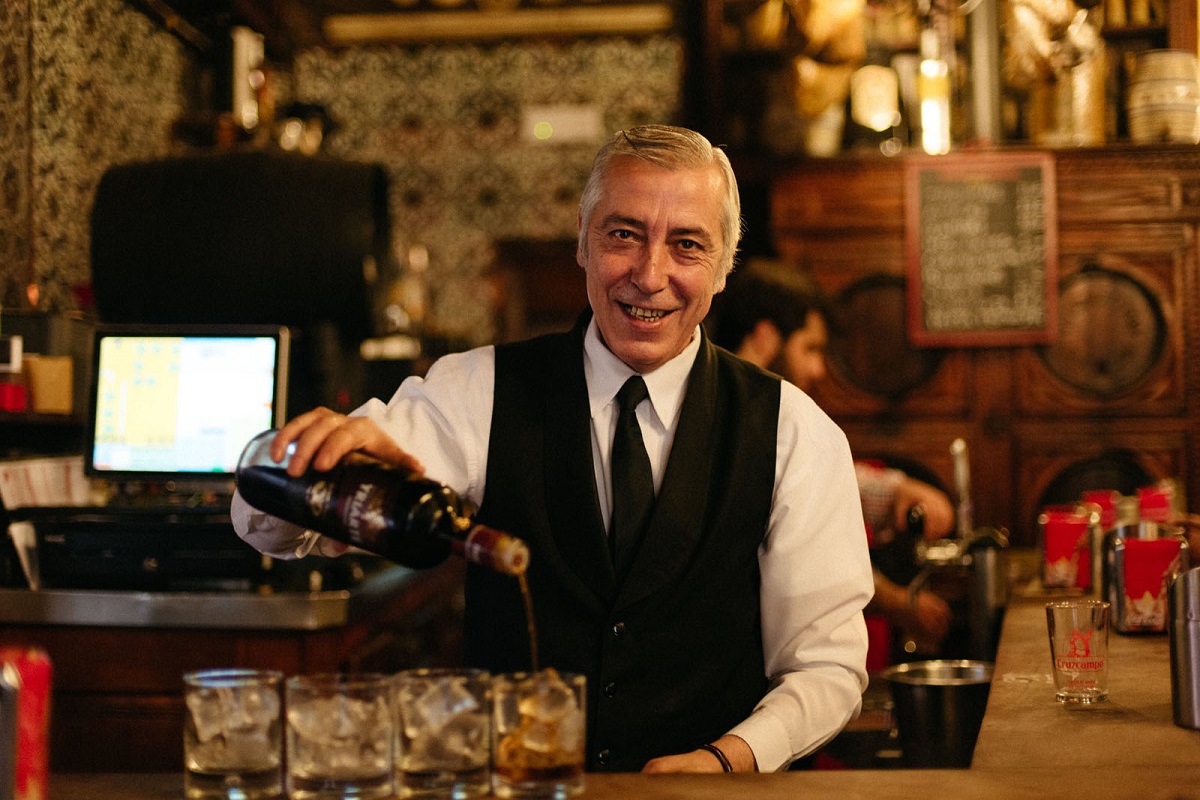
Discover Santa Cruz (the Jewish Quarter)
We’re hopeless romantics when it comes to wandering through the narrow streets of European towns. For this reason, the old Jewish Quarter (Barrio Santa Cruz) is our favorite area of the city for getting lost in. This is one of the best things to do on a quiet morning, as you can really appreciate the narrow streets and feel yourself slipping back in time. Don’t miss the Patio de las Banderas for a different view of the Cathedral.
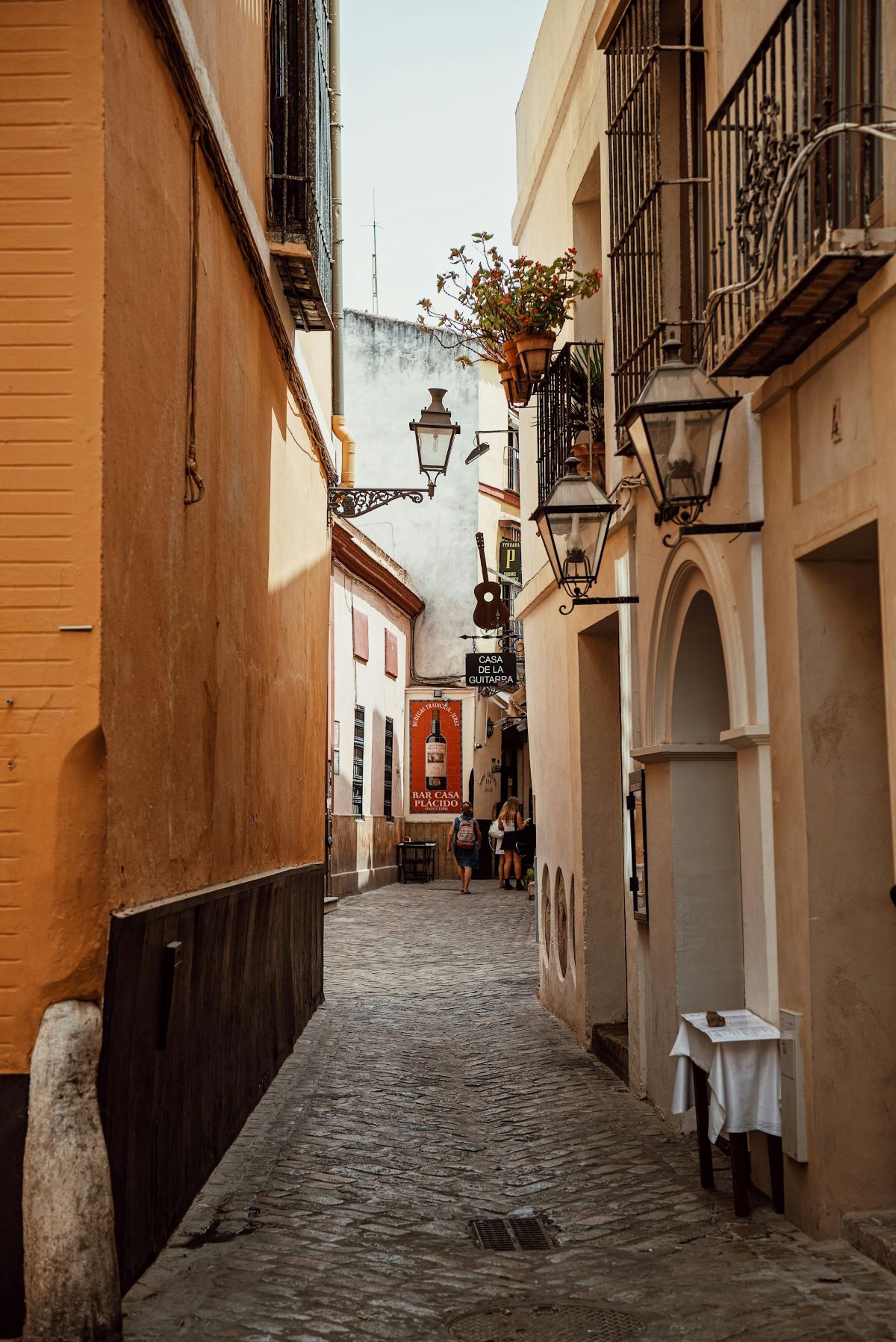
See the Casa de Pilatos
Casa de Pilatos (Pilate’s House) is an Andalusian palace which is currently the permanent residence of the Dukes of Medinaceli. As you walk inside you immediately encounter a typical Andalusian courtyard with a fountain in the middle. The amazing, ornate tiles (azulejos) are works of art, as is the ceiling in typical Mudéjar style. The house is open to visitors year round and it is the best example you can find of beautiful of the 16th-century architecture of Seville.
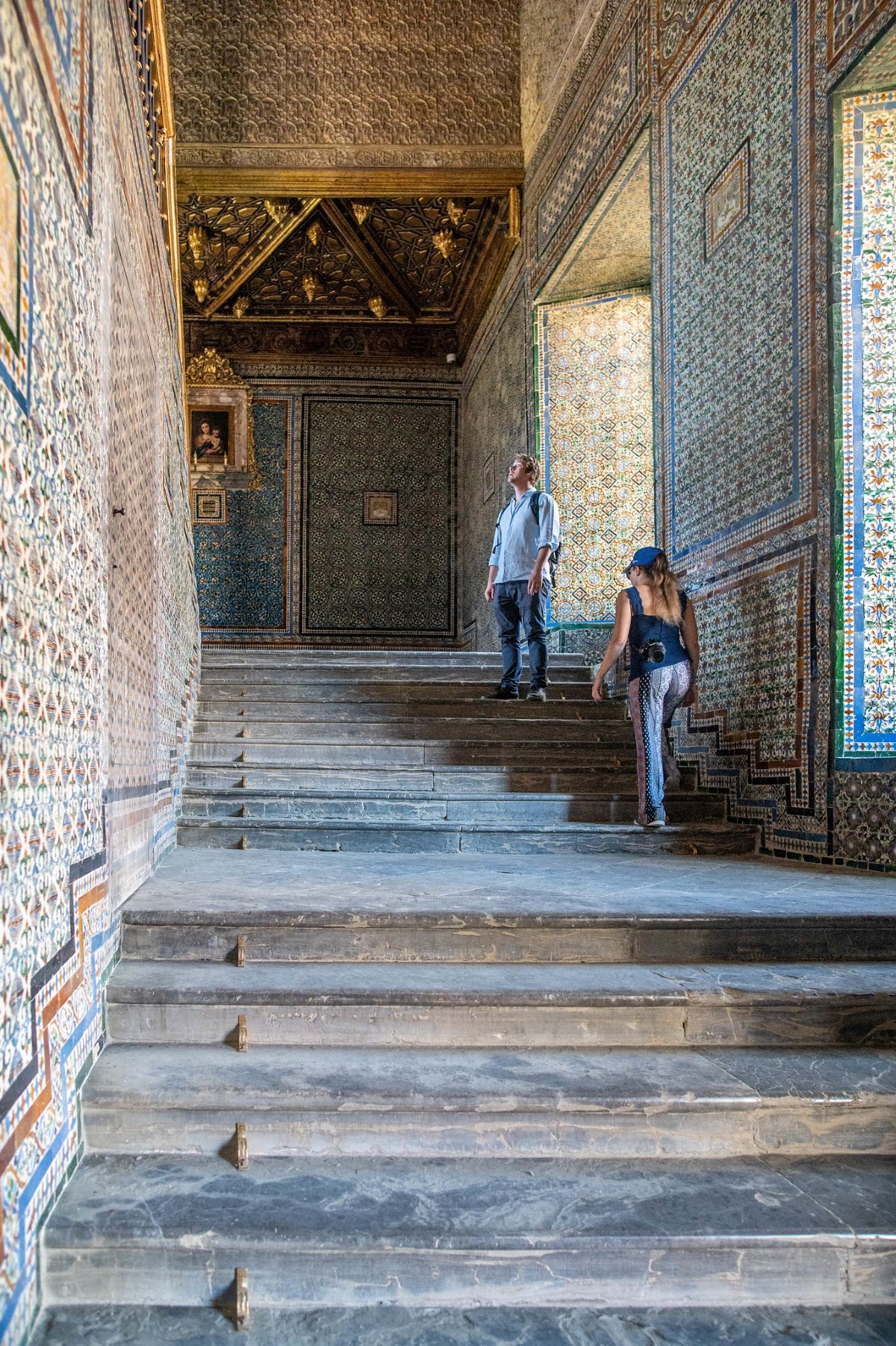
Catch a Glimpse of the Torre del Oro
Last but not least, the Torre del Oro (Golden Tower) is a must see. It was built as a military watchtower in Seville during the 13th century. There are many different legends about how its name came to be – one of the theories is that it was named after the golden shine that it projected onto the river. This shine is apparently due to the materials they used to build it, a mixture of mortar, lime, and hay. The Golden Tower is currently used as a Naval Museum and a general symbol of the city as it is so recognizable.
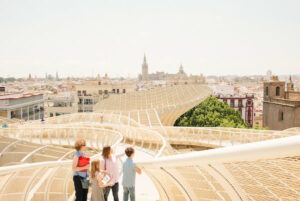
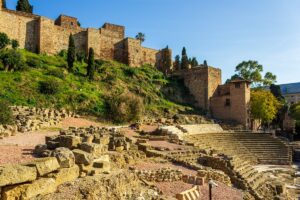
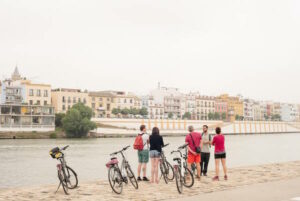







I’d also recommend the new Parasol. It may be a sort of eyesore, but you can’t beat the views (Giralda included!), and a drink comes included with your ticket!